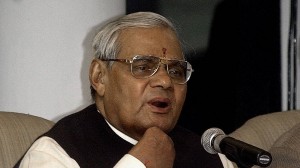Peace Watch » Editor's Take, Kashmir-Talk » Predicting 2017 For Kashmir? A Question That Bothers Us.
Predicting 2017 For Kashmir? A Question That Bothers Us.
Coming events
Who knows how will be the shape of things to come in Kashmir
Z.G. Muhammad
In March 2016, no one (not even the best political pundits, who write on every subject relating Kashmir) had visualized a summer and autumn that will go in its history as the year of the “dead-eyes.” That the year for the killing of hundred and odd children and teenagers, ‘pelting to blindness’ over five hundred boys and girls and injuring thousand of people would be ghastly and goriest ever year during past seventy years. It would not be in public domain, If the think tanks and the monitoring agencies in New Delhi and Srinagar had any inkling about a recurrence of summers of 2008, 2009 and 2010 during 2016- that too more tempestuously. Nevertheless, people in general despite their concerns and worries about some moves by the government that smelled a rat about changing the demography of the state were preparing up for normal business.
History testifies it is hard to predict in Kashmir – what is going to happen on next day? I doubt, if an internationally known astrologer like Bejan Daruwalla who is known to have personally met and read the future of three Prime Ministers of India – Morarji Desai, Atal Bihari Vajpayee & Narendra Modi can predict with authority- what next about Kashmir. Peace in the state has been a mirage since 1947, more particularly after New Delhi in its wisdom took the dispute over future of Jammu and Kashmir to the United Nations and later on denied to abide by the resolution adopted by it. For all these years it has been like a powder keg just a matchstick away. Entire seventy history attests it.
Supposedly, from 1947 to 1953, Sheikh Abdullah, Prime Minister of the State- Nehru’s man Friday had absolute sway over the overwhelming majority. That had made New Delhi believe that if a referendum were held in the state it could win hands down. But on the ground the situation was different, it was a coerced peace that could burst like a soap bubble with just a small prick. The serious undercurrents had convinced New Delhi that despite pushing important political leaders and workers across the ceasefire line, jailing more than ten thousand people it wouldn’t win a referendum. So, despite 1951 resolution by the United Nations Security Council that had categorically stated that the state Constituent Assembly would have no right to determine the future of the Jammu and Kashmir, it quickened the process for “ratifying the conditional accession”. Notwithstanding, installing one after another government through rigged elections and through devious methods to use Article 370 as a “tunnel” for integrating the state with the Union of India, peace in the state remained as brittle as ever before that could break like glass into pieces on a mere bang. Instances are galore that even a routine administrative matter like a hike in power triggered month’s long agitation in support of the demand for the right to self-determination and ended in bloodbaths.
It needs no rocket science to understand that the cause for brittleness of peace in the state is that the non-resolution of Kashmir problem. Moreover, this problem is an offspring of the birth of India and Pakistan as independent countries. That has now attained full manhood. In New Delhi there are lots of people like Swaminathan S. Anklesaria Aiyar, Sugata Bose, Ramachandra Guha and A. G. Noorani who not only know the history of the Kashmir problem but also understand political dynamics of the Dispute more particularly in view of changing power equations in the region. Many not only understand this but also appreciate coercing peace through intimidation and use of force has proved in the past and can also prove in future counterproductive. Some in New Delhi for fear of “ultra-nationalism” speak about it in muffled tones. Nevertheless, there are some voices that express their concern loudly. One such voice in the recent past has been one of the senior leaders of the BJP and former foreign and finance minister Yaswanth Sinha. He along with his team that called itself “Concerned Citizen Group” visited Kashmir more than once prepared a report and very candidly stated that Kashmir is a political problem that needs a political solution and in more than one way endorsed the public sentiment that Jammu and Kashmir need a one-time political settlement. More similar saner voices have been resounding in the rival camp of the ruling party. One of them is important Congress leader and former home minister and finance minister, P. Chidambaram. More than once he articulated that Jammu and Kashmir needs a ‘political solution.’
Like many others in the state the former home minister also seems concerned about the summer of 2017 in Kashmir. The apprehension of recurrence of happenings like that of summer of 2016 may be misplaced. Nevertheless, the atmosphere that has been building during past few day that saw over two dozen boys hit by pellets mostly in eyes does not hold a good promise for 2017. Chidambaram few day back rightly told a news agency that “the present approach should be abandoned and a new approach should be adopted. I am afraid that if the government persists in its present approach it will lead only to more conflict and more violence.”
Chidambaram and Yashwant Sinha are not solitary voices. If Delhi gets cleared of dust and smog of the ‘ultra-nationalism’ and some space becomes available to the voices of dissent the chorus for finding a political settlement of Kashmir will become louder not in university campuses only but also in political pavilions across India. The party in power needs not to plug its ears to these voices but listen to them with an open mind to the fresh ideas. It needs to unburden its self of the Nehru’s Kashmir policy that bordered on procrastination. And to adopt the Vajpayee model of initiating a tripartite dialogue for settling the problem on the principle of justice and fair play.
Published in Greater Kashmir 27-02-2017
Filed under: Editor's Take, Kashmir-Talk







